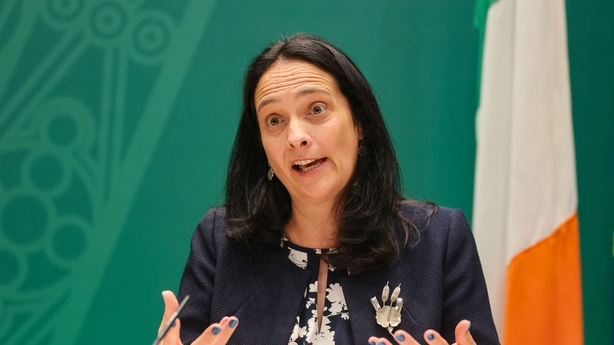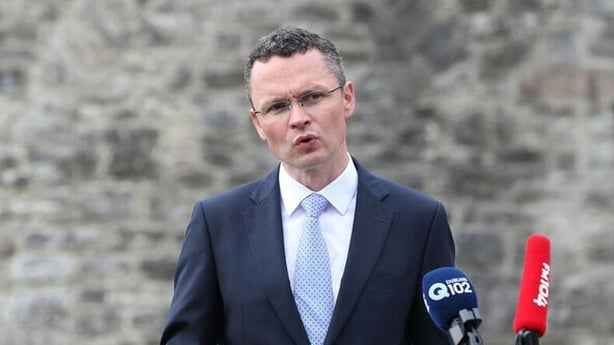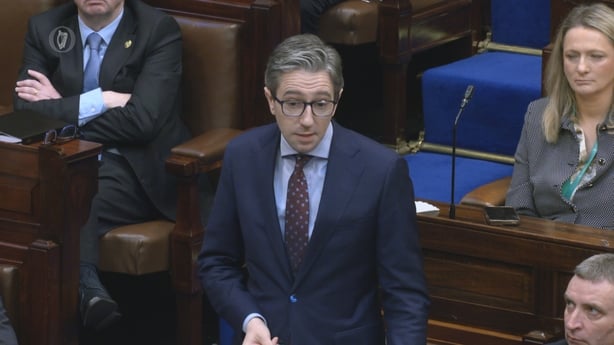The Arts Council has hit the headlines with the massive losses incurred on a failed IT project.
So far, €5.3 million has been written off completely out of a total spend of €6.7 million.
The new Minister for Arts, Culture, Communications, Media and Sport Patrick O'Donovan has commissioned an external review of Arts Council procedures and an internal review of the role of his Department.
The Opposition has pounced on this latest waste of public money with Aontú leader Peadar Tóibín telling the Dáil today that the Arts Council had "incinerated" the money.
Government ministers have also expressed outrage with Tánaiste Simon Harris warning that there would be consequences.
It is clear that the body is in the eye of a storm.
So what is known about how such a huge loss was made?
And what is at stake for the major players in this controversy as the fallout continues?
The Arts Council
The Arts Council finds itself under the microscope as Opposition and Government pile on to decry a waste of public money.
Many questions abound for an organisation that has grown exponentially in size and budget in recent years.
The Arts Council faces a major excavation of its handling of this project.
That examination has the potential to expand into a sprawling investigation of the entire body and how it spends its €140 million annual budget.
How much goes to artists?
How much goes to consultants or to partnerships with other organisations?
The current director and chair can expect to be called before the Public Accounts Committee and the Arts committee to face a grilling.
Key to all of this is whether the €6.7 million really is the final figure or does this have the potential to rise precipitously.
The public spending watchdog, the Comptroller and Auditor General, added a note to the 2023 accounts saying that current figures were "the estimate to date".

So what went wrong?
The Department review concluded that the Arts Council board did not have the adequate expertise to critically question and assess the issues in the project.
An IT project conceived back in 2019 ballooned in scope and budget in the following years.
The initial plan was to replace the largely manual grants application process with a new system.
But it grew in ambition to a "business transformation programme" which would integrate five existing business systems into one core system.
However, the project was beset by delays, an increasing scope and was not fit for purpose when delivered.
The Department review sets out a litany of criticisms.
It says that the Arts Council was not prepared for the nature and scale of the project.
The full costs were not set out in the business case presented to the Department as set out in the Public Spending Code.
Approval was not sought from the Department on additional budget allocations.
When changes and extensions to contracts with certain external suppliers were made, these exceeded the prescribed limits for increase in value under several contracts.
The chair did not report on these to the Minister as required.
In addition, the audit and risk committee and the internal audit function have not examined the project to date.
Minister Patrick O’Donovan is commissioning an external review of all aspects of how the Arts Council conducts its business.
The terms of reference for this will be brought to Cabinet within two weeks.
For its part, the Arts Council says it is seeking legal redress from contractors.
It also says it relied heavily on the external advice procured and taken in good faith.
And it says that when the substandard project was delivered, it was advised that the work could be remedied and so a decision was taken to continue.

The former minister
The Arts Council signed off on its 2023 annual accounts in June 2024 and submitted them to the Department of Tourism, Culture, Arts, Gaeltacht, Sports and Media as well as to then minister Catherine Martin.
Usually, a Minister brings the annual accounts of bodies under their remit to Cabinet for signoff and publication within a reasonable timeframe.
In this instance, that did not happen and it is not clear why.
At the time, Ms Martin was still firefighting the fallout from the RTÉ controversies and facing into a general election.
Questions have been asked as to whether the delay was an attempt to postpone the unexploded bomb until after the vote.
In the event, Ms Martin lost her seat in Dún Laoghaire Rathdown.
The Department
The Department is clearly under the microscope over its handling of the debacle.
The new Minister is commissioning a review of its procedures to examine reporting mechanisms, audit and risk, governance and decision-making.
To put it mildly, this is not an ideal way for a new Minister to form a good relationship with his Department as it puts civil servants under the spotlight.
Some believe there was also a delay within the Department itself in investigating what went wrong.

In August 2024, new Secretary General Feargal Ó Coigligh commissioned a report into what happened.
This report was published yesterday.
The official line is that the report was only completed this month.
The Government
How much was known in the previous Government?
Clearly Catherine Martin was aware of a large amount of detail in June 2024 and may have had information before then.
Current Cabinet Ministers have been quick to criticise the Arts Council and make it clear this controversy was not on their watch.
Minister Patrick O’Donovan has said he first learned of the problem when he arrived in the Department two weeks ago.
Tánaiste Simon Harris also distanced the current administration from the mess.
He told the Dáil: "Government can only be accountable for what Government is told. And if there are officials in state agencies or others who are pursuing a project that doesn’t adhere to the public spending code, that is a serious matter."

He added that the matter "should have been highlighted at an earlier stage" to Government.
But Aontú leader Peadar Tóibín was scathing in the Dáil at this response.
He said the Government was shrugging its shoulders and saying it did not know what happened.
The Meath West TD said there was a policy of "hear no evil, see no evil" by senior ministers saying they did not know what was happening.
"It is the responsibility of the Minister to know what is happening in their Department. You cannot insulate yourself from a crisis such as this by pleading ignorance over and over again. That is not an excuse in relation to waste."
Expect this controversy to roll on in the coming months.







